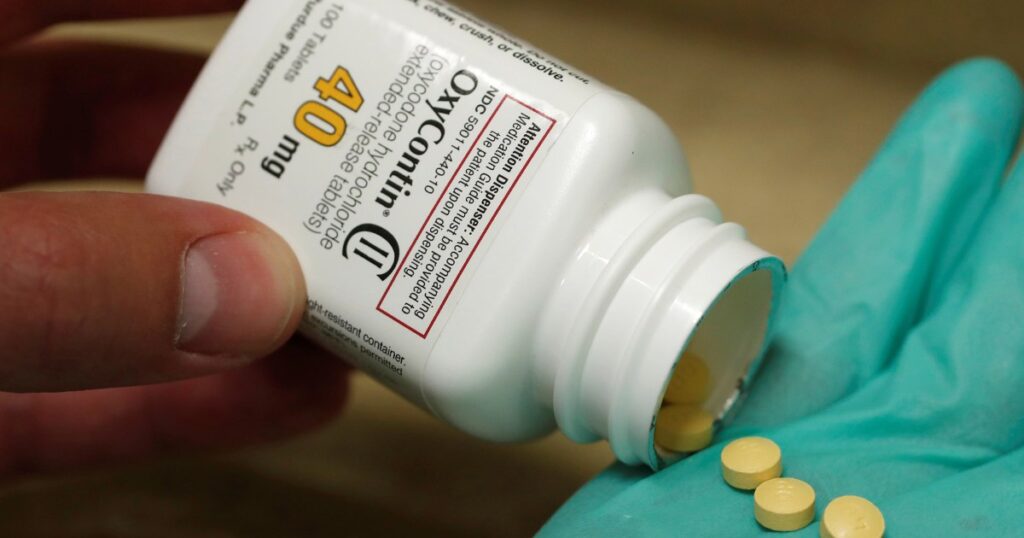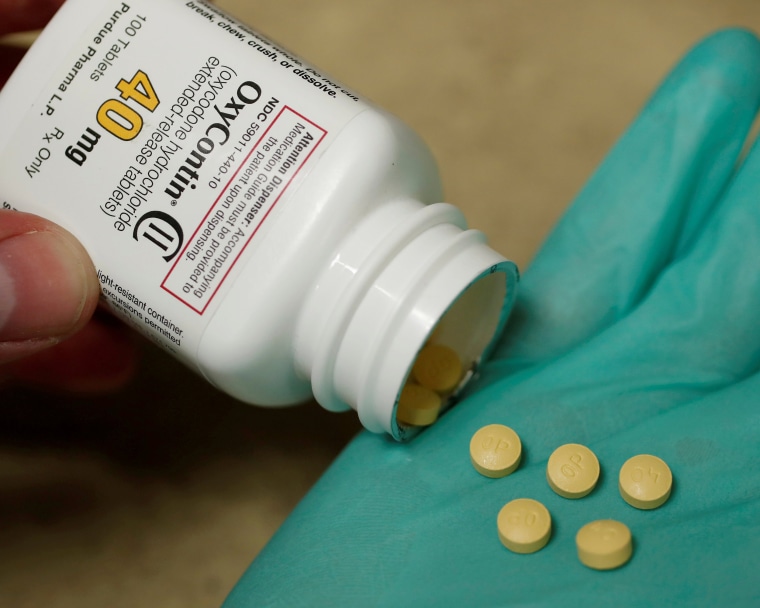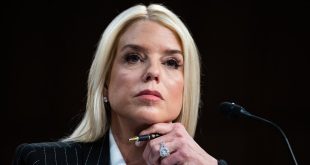
WASHINGTON — The Supreme Court on Thursday blew up the massive bankruptcy reorganization of opioid maker Purdue Pharma, finding that the settlement inappropriately included legal protections for the Sackler family, meaning that billions of dollars secured for victims is now threatened.
The court on a 5-4 vote on nonideological lines ruled that the bankruptcy court did not have the authority to release the Sackler family members from legal claims made by opioid victims.
As part of the deal, the family, which controlled the company, had agreed to pay $6 billion that could be used to settle opioid-related claims, but only in return for a complete release from any liability in future cases.

Justice Neil Gorsuch, writing for the majority, said the Sacklers could have declared bankruptcy but instead sought to piggyback on the company’s own bankruptcy proceedings in an effort to resolve pending legal claims.
“They obtained all this without securing the consent of those affected or placing anything approaching their total assets on the table for their creditors,” Gorsuch wrote.
“Nothing in present law authorizes the Sackler discharge,” he added.
Justice Brett Kavanaugh dissented, citing the impact of the decision on those who would benefit from the settlement.
“Today’s decision is wrong on the law and devastating to the more than 100,000 opioid victims and their families,” he wrote.
As a result of the ruling, “opioid victims are now deprived of the substantial monetary recovery that they long fought for and finally secured after years of litigation,” he added.
The ruling means settlement talks would have to begin again, with the possibility of no deal being reached.
During oral arguments in December, a lawyer representing some of the victims told the justices that there was “no viable path” to victims receiving compensation if the deal including the Sackler agreement was not upheld.
The case drew further attention to the lingering effects of the opioid crisis and the role that Sackler-owned Purdue played in creating it.
As part of the proposed deal, which the Supreme Court put on hold last year when it took up the case, the Sackler family had agreed to pay around $6 billion that could be used to settle opioid-related claims, but only in return for a complete release from any liability in future cases.
The settlement, including assets held by Purdue, would be worth significantly more, with the reorganized company set to dedicate itself to tackling the impact of opioid abuse.
No Sacklers have had any involvement in the company since 2019.
Purdue made billions from OxyContin, a widely available painkiller that fueled the opioid epidemic. The company’s tactics in aggressively marketing the drug came under increasing scrutiny as thousands of people died from opioid overdoses.
As the company’s fortunes nosedived, it sought bankruptcy protection, but the Sackler family members did not. Instead, they negotiated a separate deal with Purdue and plaintiffs in pending lawsuits that would allow the company to reinvent itself to address the opioid crisis.
The New York-based 2nd Circuit U.S. Court of Appeals last year approved the plan over the objection of William Harrington, the U.S. government trustee monitoring the bankruptcy. The Justice Department’s trustee program is aimed at ensuring that the bankruptcy system operates as required under law.
Harrington objected to the release of additional claims against the Sacklers, saying it would be unfair to potential future plaintiffs.
Purdue criticized Harrington’s role, saying that groups representing thousands of plaintiffs have signed on to the settlement, which could not have happened without the Sackler family contribution.
At the Supreme Court, various groups representing plaintiffs backed Purdue, including one that includes 1,300 cities, counties and other municipalities and another representing 60,000 people affected by the opioid epidemic.
Canadian municipalities and Indigenous First Nations were among those objecting to the settlement.
Purdue flourished under brothers Mortimer and Raymond Sackler, who died in 2010 and 2017, respectively. The family reaped billions and spent lavishly, including on splashy charitable projects.
The family told the Supreme Court that it continues to back the settlement.
In a brief filed on behalf of the relatives of Mortimer Sackler, most of whom are based overseas, lawyers warned of “significant litigation costs and risks” in seeking to enforce any foreign court judgments against the family if the settlement were thrown out.
 Tops Top News Online Real News Portal
Tops Top News Online Real News Portal



